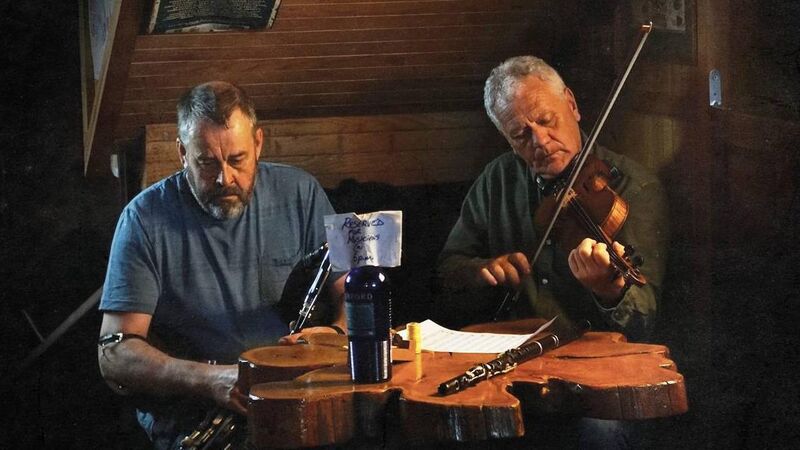Under The Stairs: How the Corner House in Cork inspired a trad album

Eoin Ó Riabhaigh and Johnny McCarthy literally under the stairs in the Corner House pub in Cork.Picture: Emmet Ó Riabhaigh
It was Belfast flute player Harry Bradley who decided that the window seat favoured by other musicians at the Corner House in Cork city was not, from an acoustic perspective, the best one in the house.
Under the stairs was, he reckoned, a preferable spot for the weekly sessions at which he joined uilleann piper Eoin Ó Riabhaigh at Fearghal MacGabhann’s renowned traditional music venue on Coburg St.




